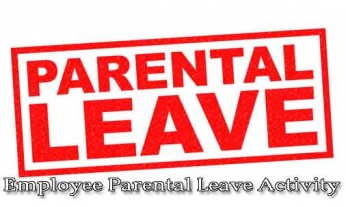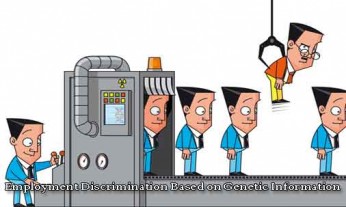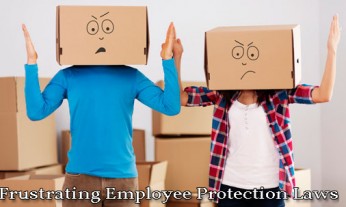 There is currently no federal law that prohibits private employers from discriminating on the basis of sexual orientation. Because of this, many people assume that it is no recourse for employees who experience this type of discrimination. This is not always the case, though. There are many jurisdictions – including the state of California – that have workplace anti-discrimination laws that extend to sexual orientation.
There is currently no federal law that prohibits private employers from discriminating on the basis of sexual orientation. Because of this, many people assume that it is no recourse for employees who experience this type of discrimination. This is not always the case, though. There are many jurisdictions – including the state of California – that have workplace anti-discrimination laws that extend to sexual orientation.
California’s anti-discrimination laws are among the broadest in the country. The California Fair Housing and Employment ACT (FEHA) prohibits employment discrimination based on sexual orientation, gender identity, and gender expression. (The statute also prohibits discrimination based on race, religious creed, color, national origin, ancestry, physical disability, mental disability, medical condition, genetic information, marital status, sex, gender, age, or military and veteran status.)
An employee who believes that he or she has been the victim of one of the above forms of discrimination can file a complaint with the Department of Fair Employment and Housing up to one year after the alleged act of discrimination took place. The employee will only receive a Notice of Right to Sue after the claim has been pursued within the Department. Prior to receiving this notice, the employee does not have the right to file a private lawsuit.
What Employers Should Know About Sexual Orientation Discrimination
California’s anti-discrimination statutes go further than simply preventing employers from firing an employee based on his or her sexual orientation. It is also illegal to:
- Refuse to hire a potential employee because of his or her sexual orientation
- Refuse to promote an employee because of his or her sexual orientation
- Create a hostile work environment for LGBT (lesbian, gay, bisexual, and/or transgender) employees
- Deny employees benefits or privileges based on sexual orientation
When it comes to any type of anti-discrimination laws, there are some employers who believe that they can get away with discrimination by simply giving fake reasons for their actions. Let’s say, for example, there’s an employer who owns a large company in California. One day, he finds out that one of his employees is a lesbian. The employer isn’t happy about this, and he’d like to fire her, but he knows it’s illegal to fire an employee based on her sexual orientation. So instead, he waits for her to make a mistake. A few days later, the employee shows up to work ten minutes late, and the employer fires her – and tells her it’s because of her lateness.
The employer might think that he has nothing to worry about. After all, there’s no law against firing employees for being late to work. But the employer’s actions would still be a violation of California law, because the lateness was just a pretext for an illegal form of discrimination. If the employee files a complaint, and she is able demonstrate that her sexual orientation was most likely the real reason she was fired, she could recover damages.
Victims of Workplace Sexual Orientation Discrimination
If you suspect that your employer has discriminated against you on account of your sexual orientation, you may wish to seek the advice of a lawyer. If you want to know more about your rights and your options, you can contact an employment and labor law attorney at Beck Law P.C. today, and schedule a consultation.









